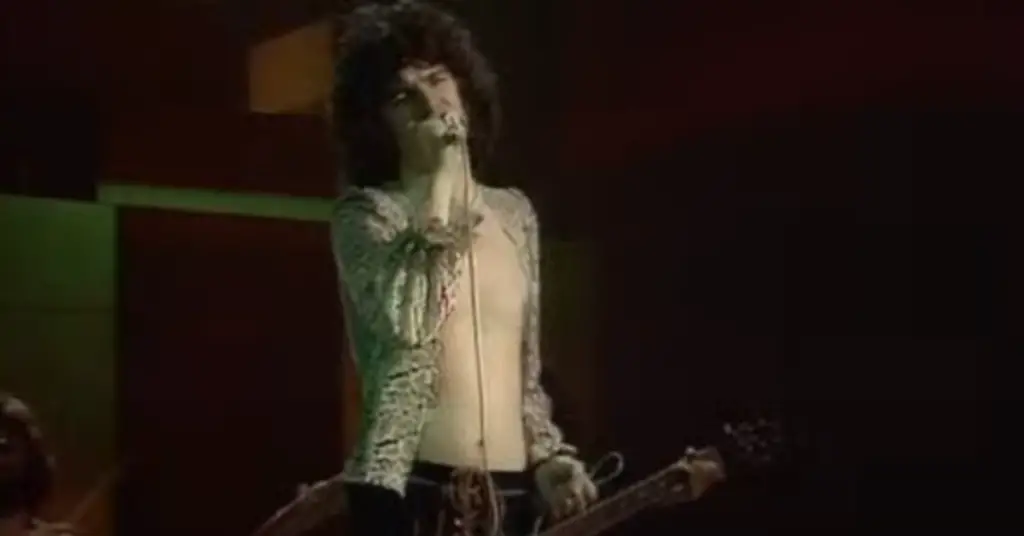Nazareth – “Love Hurts”: The Ballad That Bled with Emotion
When Nazareth released their cover of “Love Hurts” in 1974, the Scottish hard rock band took a well-worn song and turned it into something truly unforgettable. Originally written by Boudleaux Bryant and first recorded by the Everly Brothers in 1960, the song had already passed through several interpretations. But Nazareth’s version — slow, agonizing, and soul-baring — became the definitive take, and the one that made history.
With its haunting arrangement and Dan McCafferty’s gravel-laced, tortured vocals, Nazareth’s “Love Hurts” became the unexpected ballad that broke through the wall of distortion and showed that even hard rockers have hearts that can shatter.
The Sound: Stripped Down, Built to Bleed
Nazareth, known for their aggressive bluesy rockers like “Hair of the Dog,” took a different approach with “Love Hurts.” This version is slow-burning, tender, and almost painfully restrained, with every element designed to spotlight vulnerability over volume.
Musical features include:
- Clean, gently distorted electric guitar arpeggios
- Subtle drums and bass, holding back to give the vocals space
- McCafferty’s raw, aching delivery, ranging from whispery pain to full-throated anguish
- A beautiful, weeping guitar solo that echoes the emotional devastation
It’s a masterclass in minimalist arrangement that lets the emotion take center stage. No theatrics, no overproduction — just pure, aching heartbreak.
The Lyrics: Universal Pain in Three Minutes
“Love hurts, love scars / Love wounds and marks…”
The lyrics are brutally honest. There’s no poetic window-dressing, no metaphor. Just blunt truth: love can hurt, and when it does, it leaves scars. The song doesn’t try to comfort or offer hope. It’s a statement of pain, plain and unfiltered.
“Some fools think of happiness, blissfulness, togetherness…”
“Some fools fool themselves, I guess…”
This isn’t a love song — it’s a heartbreak anthem. A lament for everyone who’s ever believed in love, only to watch it dissolve. That emotional clarity is what has made the song so universally relatable — from teenage heartbreak to grown-up regret.
Chart Success and Global Impact
Nazareth’s version of “Love Hurts” became their biggest international hit, and remains the song most associated with the band:
- Reached #8 on the Billboard Hot 100 in the U.S.
- Topped the charts in Norway for 14 weeks — a record at the time
- Went Top 10 in several countries, including the UK, Netherlands, South Africa, and New Zealand
- Certified Gold in multiple markets
Its massive success brought Nazareth into the pop spotlight, even as they continued to churn out heavier rock on the side.
The Voice: Dan McCafferty’s Soul-Shaking Performance
If one element defines this version of “Love Hurts,” it’s Dan McCafferty’s vocal. Gritty, strained, and dripping with sorrow, his voice feels lived-in — like someone singing from the edge of a long, bruising relationship.
McCafferty didn’t sound like a polished crooner. He sounded like a man who’s been through it, who knows what it’s like to love too hard and break too easily. That honesty cut deeper than any lyric ever could.
Legacy: An Ageless Ballad for the Broken-Hearted
Nazareth’s “Love Hurts” has stood the test of time. It’s been:
- Covered by artists across genres — from Cher to Jim Capaldi, Gram Parsons, and Rod Stewart
- Used in countless TV shows, movies, and emotional montages
- A staple of breakup playlists and karaoke nights alike
It became a rare hard rock ballad that transcended genre, earning a place not just in rock history, but in pop culture’s emotional lexicon.
Final Thoughts
“Love Hurts” is not just a ballad — it’s a wound in song form. And Nazareth’s take on it is the version that hit the hardest, thanks to its sincerity, simplicity, and aching vocal truth.
No frills.
No fantasy.
Just the cold, honest ache of a love gone wrong.



Facebook Comments